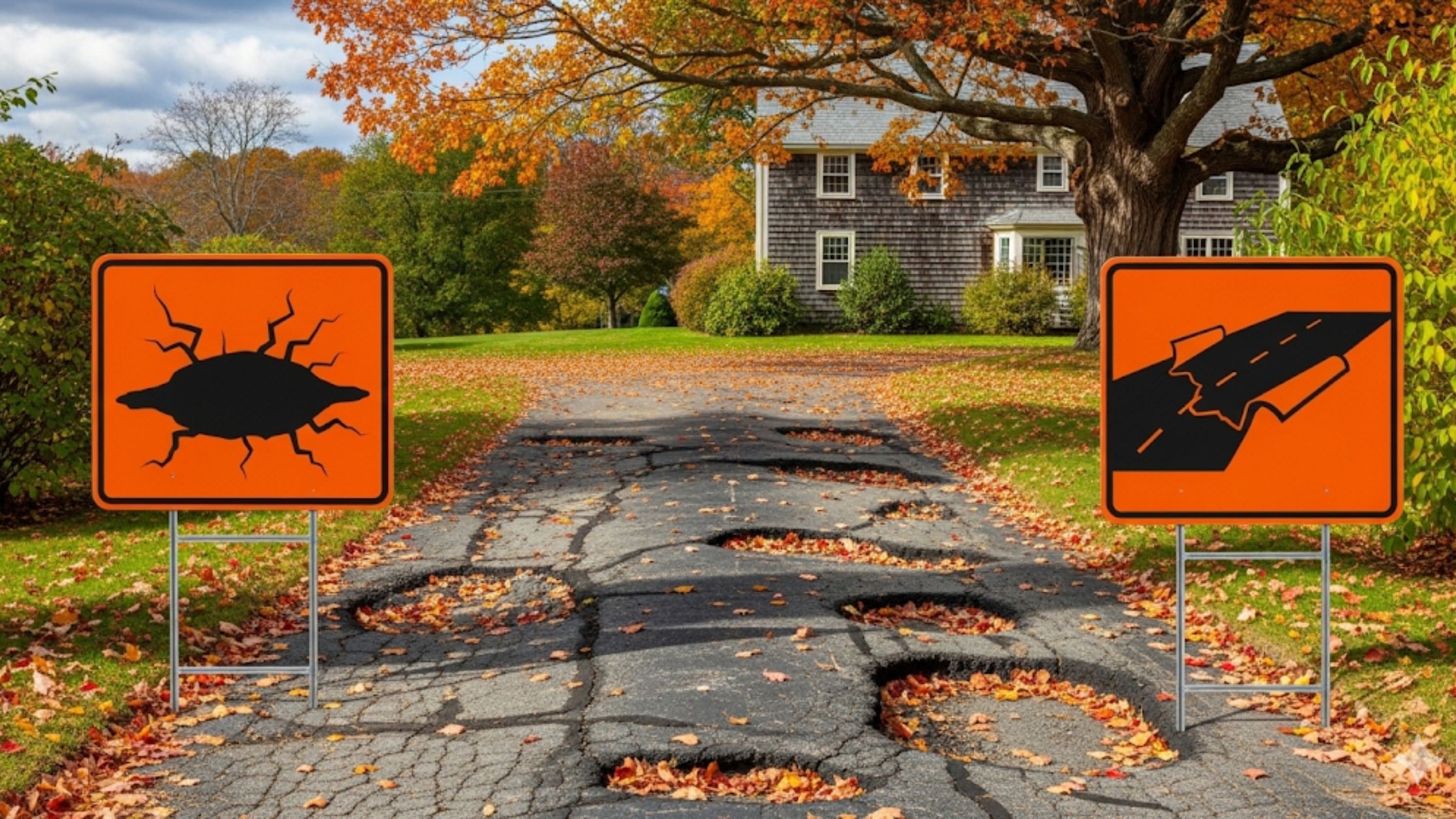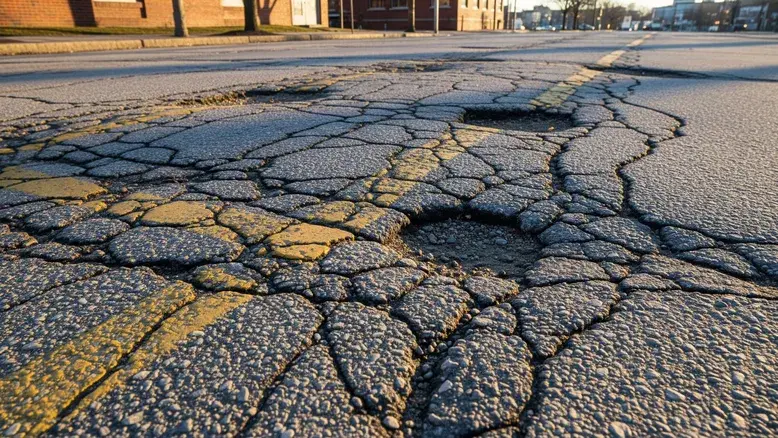Maintaining asphalt surfaces requires an understanding of materials, climate impacts, and best‐in‐class preservation techniques. Seal coating serves as a frontline defense against oxidation, UV degradation, and water infiltration. This guide delves into every facet of seal coating, providing practical insights for Springfield homeowners and property managers alike.
Drawing on regional case studies and industry benchmarks, this resource outlines strategies to protect driveways, parking lots, and municipal pavements. From product selection to application protocols, readers will learn how proactive seal coating enhances curb appeal and extends pavement lifespan. The SealCoating Guys close with details on securing expert service in Springfield, MA.
Understanding Asphalt and Weather Effects
Asphalt pavements comprise aggregate particles bonded by asphalt binder, forming a flexible surface that tolerates traffic loads. Over time, UV rays oxidize the binder, causing it to become brittle and prone to cracking. Identifying early signs of binder fatigue can prevent costly repairs down the line.
Seasonal temperature swings in Springfield, MA accelerate deterioration through freeze‐thaw cycles. Water entering micro‐fissures expands as it freezes, widening cracks and undermining the underlying base. Consistent seal coating creates a barrier that repels moisture and reduces freeze‐thaw stress.
What Is Seal Coating?
Seal coating is an emulsion of asphalt binder and additives applied as a thin film over existing asphalt. This protective layer seals capillaries in the pavement, limiting oil spills, gas drips, and UV exposure from degrading the aggregate‐binder matrix. Properly applied seal coats rejuvenate color and restore skid resistance.
The sealing emulsion often contains polymers, surfactants, and fillers that enhance film flexibility and adhesion. Polymer‐modified formulations deliver superior tensile strength, enabling the seal to flex with thermal movement. Slip‐resistant aggregates can be integrated for parking lots or pedestrian zones.
Why Springfield, MA Pavements Need Seal Coating
Springfield’s humid summers and cold winters pose unique challenges for asphalt maintenance. UV intensity during July months accelerates oxidation, while December temperatures dip below freezing for extended periods. These conditions create an environment where untreated asphalt ages rapidly.
Precipitation patterns introduce moisture deep into pavement channels, exacerbated by deicing salts in winter. Left unprotected, asphalt surfaces can develop surface spalling and potholes. Regular seal coating mitigates these risks by establishing a water‐proof membrane.
Key Benefits of Seal Coating
Seal coating restores the aesthetic value of asphalt surfaces, renewing the deep black color homeowners and businesses prefer. This visual enhancement boosts curb appeal and can increase property values through improved first impressions.
The protective emulsion shields pavement from petrol, oil stains, and pavement‐degrading chemicals. By blocking oils from penetrating the binder, seal coating prevents soft spots and keeps the asphalt matrix intact over time.
Seal Coating Service Springfield MA: What to Expect
A reputable seal coating service Springfield MA begins with a thorough site inspection, evaluating crack patterns, drainage pathways, and traffic volumes. Technicians document damaged areas and recommend pre‐treatment repairs to ensure uniform adhesion.
Once the site is assessed, cracks and voids are repaired using hot rubberized crack filler or silicone sealant. Proper crack sealing prevents reflective cracks and moisture ingress prior to the coating application.
Cleaning follows, using high‐pressure blowers or vacuums to remove dirt, debris, and vegetation from the surface. Clean substrates drastically improve bond strength and prevent premature delamination.
Application methods vary by equipment and traffic conditions. Walk‐behind squeegees deliver precise depth control for residential driveways, while spray machines expedite coverage on large commercial lots. Typically, seal coats cure to foot traffic within 4 to 6 hours, with vehicular use resumed in 24 to 48 hours.
Choosing the Right Seal Coating Products
Selecting a seal coating formulation depends on anticipated traffic loads, environmental exposure, and desired longevity. High‐traffic commercial lots often require polymer‐enhanced emulsions for greater tear resistance.
Asphalt‐Based Emulsions vs. Coal Tar Sealers
Asphalt‐based emulsions consist of refined asphalt binder, water, and chemical additives. They offer strong adhesion, lower VOC content, and compatibility with existing asphalt pavements.
Coal tar sealers use byproducts of coal distillation and provide superior chemical resistance and UV stability. However, environmental regulations often limit coal tar use due to higher VOC emissions.
Cost of Seal Coating in Springfield, MA
Property owners often ask, Cost of Seal Coating in Springfield, MA can vary significantly based on project size and surface condition. Small driveways under 500 sq ft tend to run at higher per-unit rates due to mobilization expenses.
Factors such as traffic control, crack repair, and slope complexity influence total investment. Fully detailed estimates should include cleaning, crack sealing, seal emulsion, aggregate broadcast, and labor.
Asphalt Maintenance in Springfield MA: Routine Tips
Seasonal maintenance should begin with a spring inspection to clear debris and evaluate winter damage. Ensuring proper drainage channels prevents standing water that can soften pavement edges.
Summer months offer ideal conditions for minor repairs and seal coating, with pavement temperatures between 50°F and 85°F. This temperature range allows emulsions to cure properly without trapping moisture.
Heading into fall, property managers should remove fallen leaves from pavement surfaces. Decaying organic matter can retain moisture against the seal coat and accelerate binder hydrolysis.
Winter preparedness includes clearing snow promptly and using sand rather than rock salt when possible. Sand maintains traction without introducing harsh chlorides that can degrade asphalt binders.
Common Asphalt Repair Scenarios Before Seal Coating
Potholes often originate from base failures caused by water infiltration. Standard repair methods involve removing damaged material, backfilling with hot mix asphalt, and compacting to match existing grades.
Linear cracks up to 1/4 inch wide require routed and sealed methods using hot rubber crack filler. This technique prevents water entry and reflective cracking after seal coating.
Edge breaks and alligator cracking signal underlying base instability. Addressing these with localized resurfacing or full-depth repair ensures a stable substrate for subsequent seal application.
Hiring Professional Seal Coating Services
Selecting a licensed and insured contractor protects against substandard workmanship and liability concerns. Professional applicators should provide written warranties covering material defects and delamination.
Checking references and verifying past projects in Springfield delivers insight into a contractor’s quality standards. Review testimonials and request site visits to existing seal coating installations.
Homeowners should be wary of contractors offering unrealistically low bids. Some providers cut corners by diluting emulsions or skipping essential prep work, leading to early failure.
Comprehensive Seal Coating Service in Springfield, MA
A Comprehensive Seal Coating Service in Springfield, MA includes a start-to-finish approach: assessment, repair, cleaning, application, and post-job inspection. This turnkey solution ensures each step receives professional oversight.
Qualified crews document before-and-after photos, maintain quality logs, and schedule follow-ups to inspect adhesion and cure performance. Clients benefit from a single point of contact and streamlined project management.
Environmental and Safety Standards
Massachusetts enforces VOC limits for seal coating production and application. Contractors must adhere to state-approved formulations and best management practices to minimize airborne emissions.
Slip resistance is critical for ADA compliance in pedestrian zones. Incorporating fine aggregate broadcast enhances traction, reducing liability on walkways and ramps.
Proper protective gear and ventilation during application safeguard worker health. Emulsified binders can irritate skin and mucous membranes, making PPE and equipment calibration essential.
Residential vs. Commercial Applications
Residential driveways often see light to moderate traffic, making standard emulsions cost-effective. Homeowners typically seal coat every two to three years, depending on exposure conditions.
Commercial parking lots face heavy vehicle loading and skid demands. High-performance, polymer-modified emulsions extend time between maintenance cycles, offering better ROI for large‐scale surfaces.
Municipal road shoulders, playground courts, and industrial yards require specialized coatings that resist oil spills, forklift traffic, or basketball abrasion patterns. Custom blends meet these unique use cases.
Long-Term Asphalt Preservation Strategies
Combining seal coating with routine crack filling extends pavement life by sealing micro‐defects before they become full-scale cracks. Implementing a rotating maintenance schedule ensures year-round protection.
Slurry seal or micro-surfacing treatments can follow every two to three seal coat cycles, adding a fresh binder layer and aggregate profile. This layered approach delays full mill and overlay treatments.
Once pavement nears the end of its service life, decision-makers should evaluate overlay versus replacement costs. Properly documented maintenance records support funding requests for capital projects.
Why Trust The SealCoating Guys
Local property owners rely on The SealCoating Guys for timely service, transparent pricing, and industry-leading warranties. With a decade of experience in Western Massachusetts, this team understands regional climate impacts.
Certified technicians use EPA-compliant, polymer-enriched emulsions that meet or exceed performance standards. Each project includes detailed preparation, full documentation, and a satisfaction guarantee.
Contact The SealCoating Guys today for a no-obligation estimate and discover why Springfield residents choose professionals who deliver lasting results.
Frequently Asked Questions
What is the ideal frequency for seal coating an asphalt driveway?
Seal coating every two to three years balances protection and budget. High-traffic areas may require annual applications to prevent oxidation and moisture damage.
Can seal coating repair existing cracks and potholes?
Seal coating alone does not structurally repair large defects. Crack filling and pothole patching precede seal coat applications to ensure a smooth, sealed surface.
How long does a seal coat need to cure before traffic?
Most seal coatings cure enough for pedestrian traffic within 4–6 hours. Vehicular use is typically safe after 24–48 hours, depending on ambient temperature and humidity.
What time of year is best for seal coating in Springfield, MA?
Late spring through early fall offers optimal curing conditions. Pavement temperatures between 50°F and 85°F and low humidity ensure proper binder film formation.
Are there environmental regulations affecting seal coating products?
Yes. Massachusetts enforces VOC limits and mandates usage of state-approved formulations. Contractors must comply with environmental guidelines to minimize air and water pollution.






.webp)

.svg)



